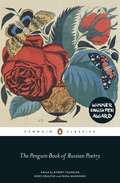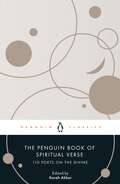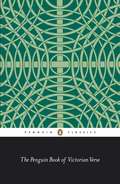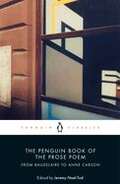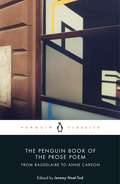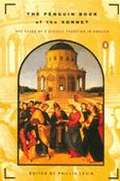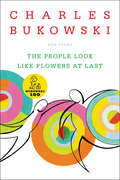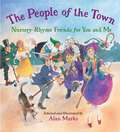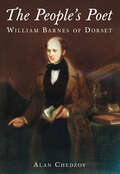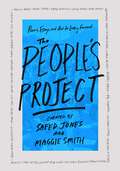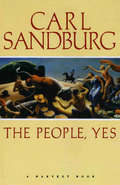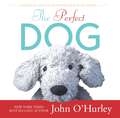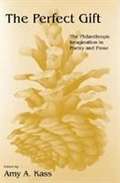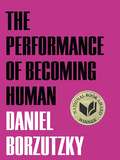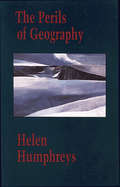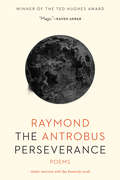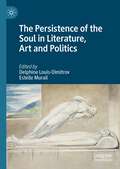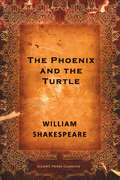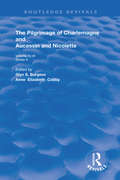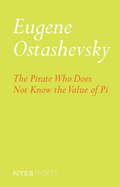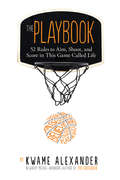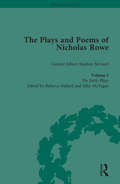- Table View
- List View
The Penguin Book of Russian Poetry
by Robert Chandler, Boris Dralyuk and Irina MashinskiAn enchanting collection of the very best of Russian poetry, edited by acclaimed translator Robert Chandler together with poets Boris Dralyuk and Irina Mashinski. In the late eighteenth and early nineteenth centuries, poetry's pre-eminence in Russia was unchallenged, with Pushkin and his contemporaries ushering in the 'Golden Age' of Russian literature. Prose briefly gained the high ground in the second half of the nineteenth century, but poetry again became dominant in the 'Silver Age' (the early twentieth century), when belief in reason and progress yielded once more to a more magical view of the world. During the Soviet era, poetry became a dangerous, subversive activity; nevertheless, poets such as Osip Mandelstam and Anna Akhmatova continued to defy the censors. This anthology traces Russian poetry from its Golden Age to the modern era, including work by several great poets - Georgy Ivanov and Varlam Shalamov among them - in captivating modern translations by Robert Chandler and others. The volume also includes a general introduction, chronology and individual introductions to each poet. Robert Chandler is an acclaimed poet and translator. His many translations from Russian include works by Aleksandr Pushkin, Nikolay Leskov, Vasily Grossman and Andrey Platonov, while his anthologies of Russian Short Stories from Pushkin to Buida and Russian Magic Tales are both published in Penguin Classics.Irina Mashinski is a bilingual poet and co-founder of the StoSvet literary project. Her most recent collection is 2013's Ophelia i masterok [Ophelia and the Trowel].Boris Dralyuk is a Lecturer in Russian at the University of St Andrews and translator of many books from Russian, including, most recently, Isaac Babel's Red Cavalry (2014).
The Penguin Book of Spiritual Verse: 110 Poets on the Divine
by Kaveh Akbar'A profoundly valuable collection, full of fresh perspective, and opening doors into all kinds of material that has been routinely neglected or patronized' Rowan Williams, TLSThis rich and surprising anthology is a holistic, global survey of a lyric conversation about the divine, one which has been ongoing for millennia. Beginning with the earliest attributable author in all of human literature, the twenty-third century BCE Sumerian High Priestess Enheduanna, and taking in a constellation of voices - from King David to Lao Tzu, from the Epic of Gilgamesh to the Malian Epic of Sundiata - this selection presents a number of canonical figures like Blake, Dickinson and Tagore, alongside lesser-anthologized, diverse poets going up to the present day. Together they show the breathtaking multiplicity of ways humanity has responded to the spiritual, across place and time.
The Penguin Book of Victorian Verse
by Daniel KarlinDaniel Karlin has selected poetry written and published during the reign of Queen Victoria, (1837-1901). Giving pride of place to Tennyson, Robert Browning, and Christina Rossetti, the volume offers generous selections from other major poets such asArnold, Emily Bronte, Hardy and Hopkins, and makes room for several poem-sequences in their entirety. It is wonderful, too, in its discovery and inclusion of eccentric, dissenting, un-Victorian voices, poets who squarely refuse to 'represent' their period. It also includes the work of Elizabeth Barrett Browning, George Meredith, James Thomson and Augusta Webster.
The Penguin Book of the Prose Poem: From Baudelaire to Anne Carson
by Jeremy Noel-TodAn essential anthology that puts contemporary geniuses Eileen Myles and Margaret Atwood in conversation with literary classics Charles Baudelaire and Oscar Wilde about the liberating and unique combination of poetry and prose <p><p>A Penguin Classic. The prose poem has proven one of the most innovative and versatile poetic forms of recent years. In the century-and-a-half since Charles Baudelaire, Emma Lazarus, Oscar Wilde and Ivan Turgenev spread the notion of a new kind of poetry, this "genre with an oxymoron for a name" has attracted many of our most beloved writers. Yet, even now, this peculiarly rich and expansive form is still misunderstood and overlooked. Here, Jeremy Noel-Tod reconstructs the history of the prose poem for us by selecting the essential pieces of writing, covering a greater chronological sweep and international range than any previous anthology of its kind. Noel-Tod even calls it "an alternative history of modern poetry." <p><p>In The Penguin Book of the Prose Poem, Patricia Lockwood and Claudia Rankine rub shoulders with Margaret Atwood and Adrienne Rich; Allen Ginsberg and Gertrude Stein appear with Lu Xun and Jorge Luis; Czeslaw Milosz sits just pages from Eileen Myles.
The Penguin Book of the Prose Poem: From Baudelaire to Anne Carson
by Jeremy Noel-Tod'A wonderful book - an invigorating revelation ... An essential collection of prose poems from across the globe, by old masters and new, reveals the form's astonishing range' Kate Kellaway, Observer'A superb anthology . . . it is hard to know how it could possibly be bettered' Daily TelegraphThis is the prose poem: a 'genre with an oxymoron for a name', one of literature's great open secrets, and the home for over 150 years of extraordinary work by many of the world's most beloved writers. This uniquely wide-ranging anthology gathers essential pieces of writing from every stage of the form's evolution, beginning with the great flowering of recent years before moving in reverse order through the international experiments of the 20th century and concluding with the prose poem's beginnings in 19th-century France.Edited with an introduction by Jeremy Noel-Tod
The Penguin Book of the Sonnet: 500 Years of a Classic Tradition in English
by Phillis LevinThe poet and scholar Phillis Levin has gathered more than 600 sonnets to tell the full story of the sonnet tradition in the English language.
The People Look Like Flowers At Last
by Charles Bukowskithe gas line is leaking, the bird is gone from the cage, the skyline is dotted with vultures;Benny finally got off the stuff and Betty now has a jobas a waitress; andthe chimney sweep was quite delicate as hegiggled up through the soot.I walked miles through the city and recognizednothing as a giant claw ate at my stomach while the inside of my head felt airy as if I was about to go mad.it's not so much that nothing means anything but more that it keeps meaningnothing,there's no release, just gurus and self-appointed gods and hucksters.the more people say, the less there is to say.even the best books are dry sawdust.--from "fingernails; nostrils; shoelaces"
The People of the Town: Nursery-Rhyme Friends for You and Me
by Alan MarksMeet familiar friends and new neighbors in this playful collection of nursery rhymes. On a misty, moisty morning, we meet the snoring old man, and by evening we&’re running through the town with Wee Willie Winkie in his nightgown. A day full of nursery rhyme enchants, delights, and enlightens young readers. Gorgeous illustrations paired with quintessential nursery rhymes introduce familiar friends like Little Bo Peep, Georgie Porgie and the Grand Old Duke of York, as well as meet new neighbors, including Little Polly Flinders, Honest John Boldero and Little Tommy Tucker. An attractive and easily giftable collection of tried and true favorites.
The People's Poet: William Barnes of Dorset
by Alan ChedzoyBorn the child of an agricultural labourer in Dorset’s Blackmore Vale, by self-education William Barnes (1801-1886) rose to be a lawyer's clerk, a schoolmaster, a much-loved clergyman, and a scholar who could read over seventy languages. He also became the finest example of an English poet writing in a rural dialect. In this book, Alan Chedzoy shows how, uniquely, he presented the lives of pre-industrial rural people in their own language. He also recounts how Barnes’s linguistic studies enabled him to defend the controversial notion that the dialect of the labouring people of Wessex was the purest form of English. Serving both as an anthology and an account of how the poems came to be written, this biography is essential reading for anyone who wants to discover more about the man who, in an obituary, Thomas Hardy described as ‘probably the most interesting link between present and past life that England possessed’.
The People's Project: Poems, Essays, and Art for Looking Forward
by Maggie Smith Saeed JonesNATIONAL BESTSELLER A liberatory anthology of twenty-seven writers—a community in book form—charting paths ahead for action and care in the face of political uncertainty, curated by Maggie Smith and Saeed Jones. Inspired by Saeed Jones and Maggie Smith&’s conversations in the wake of the 2024 election, this is a collection of poems, essays, and visual art on what we—individually and collectively—can hold onto, and what we can work towards. In times of difficulty, with a government working against its own people, we must turn to our friends and loved ones to provide context, language, energy, and hope. The People&’s Project offers a range of perspectives, drawing wisdom from their communities and histories: from know-your-place aggression to crip time as a way forward, from finding strength in nature to how trans people provide a guide for the future, and how hope has everything to do with survival. We hope these meditations and strategies will provide you with inspiration and fortitude for the years ahead. Featuring original and selected work from Alexander Chee, Chase Strangio, Tiana Clark, Hala Alyan, Aubrey Hirsch, Imani Perry, Abi Maxwell, Victoria Chang, Koritha Mitchell, Jason Silverstein, Alice Wong, Mira Jacob, Aruni Kashyap, Sam Sax, Ashley C. Ford, Marlon James, Eula Biss, Randall Mann, Danez Smith, Ada Limon, Kiese Laymon, Joy Harjo, Jill Damatac, and Patricia Smith.
The People, Yes
by Carl SandburgThe acclaimed epic prose-poem from one of America’s greatest poets and the three-time winner of the Pulitzer Prize. A long poem that makes brilliant use of the legends and myths, the tall tales and sayings of America. As Irish poet Padraic Colum said, “The fine thing about The People, Yes is that it is indubitable speech. Here is a man speaking, a man who knows all sorts and conditions of men, who can be wise and witty, stirring and nonsensical with them all. Carl Sandburg is a master of his own medium; he can deliver himself with the extraordinary clarity of the comic strip caption, with the punch of the tip-top editorial, with the jingle of the American ballad. If America has a folksinger today he is Carl Sandburg, a singer who comes out of the prairie soil, who has the prairie inheritance, who can hand back to the people a creation that has scraps of their own insight, humor, and imagination, a singer, it should be added, who both says and sings . . . He has a passion that gives dignity to all he says. It is a passion for humanity, not merely for the man with depths of personality in him, but for the ordinary man and woman . . . The People, Yes is his most appealing volume.”Praise for Carl Sandburg“A poetic genius whose creative power has in no way lessened with the passing years.” —Chicago Tribune“Carl Sandburg was more than the voice of America, more than the poet of its strength and genius. He was America.” — President Lyndon B. Johnson
The Perfect Dog
by John O'HurleyMy son asked a question, as little boys do,Of me in my wisdom and all that I knew.“Is there a dog that is perfect?” he asked on a whim.Well, I thought,And I thought about where to begin.With all the wonderful kinds of dogs in the world, is there really just one kind that is better than all the rest? John O’Hurley’s delightfully charming and Seuss-like poem answers that question with a surprisingly perfect answer. This heartwarming message about man’s best friend, accompanied by photographs that capture the essence of dog-ness, is sure to be treasured by dog lovers and non-dog lovers alike. The book comes with an audio CD of John's reading of the poem.
The Perfect Gift: The Philanthropic Imagination In Poetry And Prose (Philanthropic And Nonprofit Studies)
by Amy A. KassThis volume aims at cultivating and enlightening our philanthropic imagination. It addresses us all as present and future philanthropists, as human beings who give, serve, and seek to promote the well being of others. It suggests that we are continually confronted with choices about giving, and offers a collection of writings intended to help us reflect more seriously on these choices, and to make philanthropic acts, when they are undertaken, more meaningful. The readings contained in The Philanthropic Imagination come from a variety of cultures, time periods, and genres. They represent classical works of literature, philosophy, and religion, but also contemporary and popular writings. Selections are drawn from the works of Aristotle, Shakespeare, Dostoevsky, C. S. Lewis, Alexis de Tocqueville, Martin Luther King, P. G. Wodehouse, Sholom Aleichem, and Shel Silverstein, among others. They are organized by the specific question they address: When, why, how, to whom, and what should we give? Amy Kass provides a general introduction to the book, as well as introductions to each selection. The introductions offer context for each reading and questions to guide reflection, but they do not supply uniform answers. The answers must come from the reader.
The Performance Of Becoming Human
by Daniel BorzutzkyFollowing in the path of his acclaimed collections THE BOOK OF INTERFERING BODIES (Nightboat, 2011) and IN THE MURMURS OF THE ROTTEN CARCASS ECONOMY (Nightboat, 2015), Daniel Borzutzky returns to confront the various ways nation-states and their bureaucracies absorb and destroy communities and economies. <P><P> In THE PERFORMANCE OF BECOMING HUMAN, the bay of Valparaiso merges into the western shore of Lake Michigan, where Borzutzky continues his poetic investigation into the political and economic violence shared by Chicago and Chile, two places integral to his personal formation. To become human is to navigate borders, including the fuzzy borders of institutions, the economies of privatization, overdevelopment, and underdevelopment, under which humans endure state-sanctioned and systemic abuses in cities, villages, deserts. <P> National Book Award Winner
The Perils of Geography
by Helen HumphreysIn her third book of poetry The Perils of Geography, Helen Humphreys charts a world that opens under the prodding and promise of language. With the wit and eye for evocative detail which gained readers for both Gods and Other Mortals and Nuns Looking Anxious, Listening to Radios, Humphreys probes the immediacy of now, the intensity of this, the residue of then. Don’t be deceived by the spare appearance; her poems are resonant and full, "all angles and confidence." Light falls slant across them. She maps "what surrounds not what's made still" -- "the moving line." The line she traces connects the pull of memory and moment, open roads and winter aconite, transcendental basements and ornamental shrubbery. In "Singing to the Bees," the ten poem sequence which makes up the second of three sections in Perils, she slips inside folk wisdoms, wears them with an easy grace, all flesh and wit and possibility: dancing shoes, gifted pigs, swarming bees, airplane nuns and spectre ships. These poems make superstition delicious.
The Perseverance
by Raymond AntrobusFeatured on NPR's Morning Edition <P><P>A Poetry Book of the Year at The Guardian, The Sunday Times, and Poetry School <P><P>Winner of the Ted Hughes Award, Rathbones Folio Prize, and Somerset Maugham Award; shortlisted for the Griffin Poetry Prize <P><P>In the wake of his father’s death, the speaker in Raymond Antrobus’ The Perseverance travels to Barcelona. In Gaudi’s Cathedral, he meditates on the idea of silence and sound, wondering whether acoustics really can bring us closer to God. Receiving information through his hearing aid technology, he considers how deaf people are included in this idea. “Even though,” he says, “I have not heard / the golden decibel of angels, / I have been living in a noiseless / palace where the doorbell is pulsating / light and I am able to answer.” <P><P>The Perseverance is a collection of poems examining a d/Deaf experience alongside meditations on loss, grief, education, and language, both spoken and signed. It is a book about communication and connection, about cultural inheritance, about identity in a hearing world that takes everything for granted, about the dangers we may find (both individually and as a society) if we fail to understand each other.
The Persistence of the Soul in Literature, Art and Politics
by Estelle Murail Delphine Louis-DimitrovThis book analyses the evolution of literary and artistic representations of the soul, exploring its development through different time periods. The volume combines literary, aesthetic, ethical, and political considerations of the soul in texts and works of art from the seventeenth to the twenty-first centuries, spanning cultures and schools of thought. Drawing on philosophical, religious and psychological theories of the soul, it emphasizes the far-reaching and enduring epistemological function of the concept in literature, art and politics. The authors argue that the concept of the soul has shaped the understanding of human life and persistently irrigated cultural productions. They show how the concept of soul was explored and redefined by writers and artists, remaining relevant even as it became removed from its ancient or Christian origins.
The Pet Vet
by Marcia LeonardI am Bret. I am a vet. I can help you with your pet. Is your tan cat sick and hot? I will fix it with a shot.
The Phoenix and the Turtle
by William ShakespeareShakespeare's telling of the funeral arrangements for the Phoenix and the Turtledove embodies the depth of their love and the tragedy of their deaths.
The Pilgrimage of Charlemagne and Aucassin and Nicolette (Routledge Revivals)
by Glyn S. Burgess Anne Elizabeth CobbyOriginally compiled and published in 1988, this volume contains the text and translation of 'The Pilgrimmage of Charlemagne' and 'Aucassin and Nicolette,' alongisde textual notes and a bibliography for both.
The Pill Versus The Springhill Mine Disaster
by Richard BrautiganSelected poems of Brautigan from 1957-1968
The Pirate Who Does Not Know the Value of Pi
by Eugene OstashevskyAn original collection from one of the most active poets in contemporary literature.The Pirate Who Does Not Know the Value of Pi is a poem-novel about the relationship between a pirate and a parrot who, after capturing a certain quantity of prizes, are shipwrecked on a deserted island, where they proceed to discuss whether they would have been able to communicate with people indigenous to the island, had there been any. Characterized by multilingual punning, humor puerile and set-theoretical, philosophical irony and narrative handicaps, Eugene Ostashevsky’s new large-scale project draws on sources as various as early modern texts about pirates and animal intelligence, old-school hip-hop, and game theory to pursue the themes of emigration, incomprehension, untranslatability, and the otherness of others.
The Playbook: 52 Rules to Aim, Shoot, and Score in This Game Called Life
by Kwame Alexander Mr Thai Neave<P>You gotta know the rules to play the game. <br> Ball is life. <br>Take it to the hoop. <br>Soar. <P>What can we imagine for our lives?<br> What if we were the star players, moving and grooving through the game of life? <br>What if we had our own rules of the game to help us get what we want, what we aspire to, what will enrich our lives? <P>Illustrated with photographs by Thai Neave, The Playbook is intended to provide inspiration on the court of life. Each rule contains wisdom from inspiring athletes and role models such as Nelson Mandela, Serena Williams, LeBron James, Carli Lloyd, Steph Curry and Michelle Obama. <P>Kwame Alexander also provides his own poetic and uplifting words, as he shares stories of overcoming obstacles and winning games in this motivational and inspirational book just right for graduates of any age and anyone needing a little encouragement. <P><b>A New York Times Bestseller</b>
The Plays and Poems of Nicholas Rowe, Volume I: The Early Plays (The Pickering Masters)
by Rebecca Bullard Stephen Bernard John McTagueNicholas Rowe was the first Poet Laureate of the Georgian era. A fascinating and important yet largely overlooked figure in eighteenth-century literature, he is the ‘lost Augustan’. His plays are important both for the way they address the political and social concerns of the day and for reflecting a period in which the theatre was in crisis. This edition sets out to demonstrate Rowe’s mastery of the early eighteenth century theatre, especially his providing significant roles for women, and examines the political and historical stances of his plays. It also highlights his work as a translator, which was both innovative and deeply in tune with current practices as exemplified by John Dryden and Alexander Pope. This is the first scholarly edition of all Rowe’s plays and poems and is accompanied by 15 musical scores and 31 black and white illustrations. In this first volume, a general introduction by Stephen Bernard and Michael Caines introduces Rowe's works and the five volumes that comprise this set. It then presents the early plays, The Ambitious Step-Mother, Tamerlane, and The Fair Penitent along with a newly written explanatory introduction by Rebecca Bullard and John McTague which precedes the full edited text. Appendices covering dedications performance history, the related music and textual apparatus are also included. A consolidated bibliography is included with the final volume for ease of reference.
